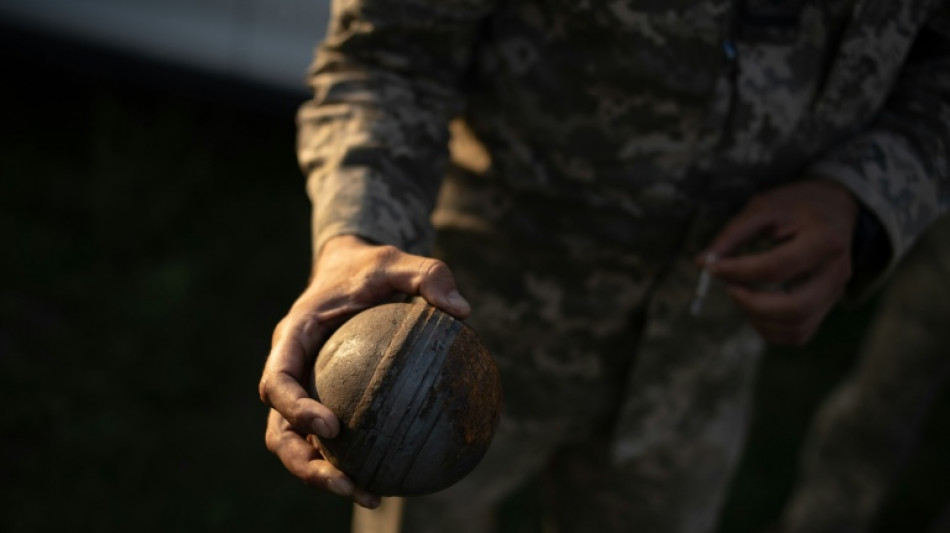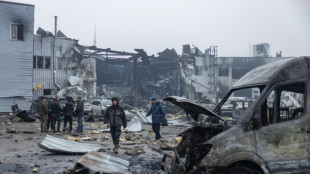

Cluster bombs kill, wound over 1,200 in Ukraine since 2022: monitor
Cluster munitions have killed or injured more than 1,200 civilians in Ukraine since Russia's full-scale invasion began, a monitor said Monday, decrying "troubling setbacks" in global efforts to eradicate the weapons.
Since Russia expanded the invasion of its western neighbour in February 2022, Ukraine has registered the highest number of recorded annual cluster munition casualties worldwide, the Cluster Munition Coalition (CMC) said in its annual report.
Russia has used the widely-banned weapons "extensively" since the first day of the war, it said, adding that Ukraine too had used the weapons, and faces Russian accusations of deploying them inside of Russia.
At least 193 cluster munition casualties were recorded in Ukraine in 2024, out of 314 globally, the report said.
In total, more than 1,200 such casualties have been registered in Ukraine since the start of the war, most of them in 2022.
But the report stressed that the figure was surely a dramatic underestimate, pointing out that last year alone, Ukraine suffered around 40 cluster munition attacks where casualty numbers were not given.
Cluster munitions can be dropped from planes or fired from artillery before exploding in mid-air and scattering bomblets over a wide area.
They pose a lasting threat since many fail to explode on impact, effectively acting as landmines that can explode years later.
- 'Catastrophic' -
Neither Russia nor Ukraine are among the 112 states that are party to the 2008 Convention on Cluster Munitions, which prohibits the use, transfer, production and storage of cluster bombs.
The only other two countries where cluster munition attacks were registered last year -- Myanmar and Syria -- have not joined the convention either.
The United States, also not a party to the treaty, sparked outcry with its 2023 decision to transfer cluster munitions to Kyiv.
It has since transferred the weapons to Ukraine in at least seven separate shipments, CMC said.
Submunitions with Korean language markings have meanwhile been found in Ukrainian-controlled territory this year, but the report said it remained unclear if they had been used by the North Korean forces fighting alongside Russians in the war, or if they had simply been acquired from North Korea by Russia for Russian use.
At a global level, CMC also warned of "troubling setbacks" threatening efforts to establish new international norms stigmatising the use of cluster munitions.
Lithuania in March this year became the first ever country to withdraw from the treaty, six months after it announced it was leaving, citing regional security concerns.
Following that move, Lithuania, along with Poland, Latvia, Estonia and Finland, also said they would quit a treaty banning anti-personnel landmines amid concerns over "Russia's aggression".
Tamar Gabelnick, head of the Cluster Munition Coalition, decried Lithuania's departure, warning that it "undermines the norm created by the convention, with catastrophic implications for the rule of international law protecting civilians".
"We have already seen the impact this decision has had on the Mine Ban Treaty, and states should be extremely wary of a wider domino effect."
G.Lombardi--MJ




